


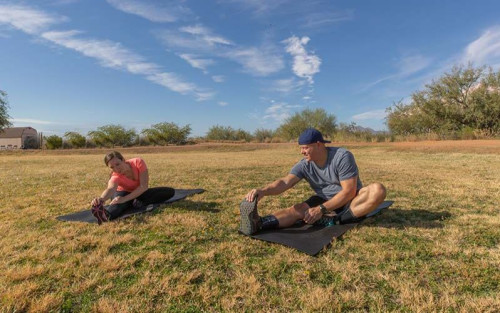





Sierra Tucson
Verified Center
This provider's information has been quality-checked by Recovery.com's Research Team for accuracy and completeness, including center verification through appropriate third-party organizations.
Treatment Focus
This center treats substance use disorders and mental health conditions. You'll receive individualized care catered to your unique situation and diagnosis, learn practical skills for recovery, and make new connections in a restorative environment.
Primary Level of Care
Offering intensive care with 24/7 monitoring, residential treatment is typically 30 days and can cover multiple levels of care. Length can range from 14 to 90 days typically.
Treatment Focus
This center treats substance use disorders and mental health conditions. You'll receive individualized care catered to your unique situation and diagnosis, learn practical skills for recovery, and make new connections in a restorative environment.
Primary Level of Care
Offering intensive care with 24/7 monitoring, residential treatment is typically 30 days and can cover multiple levels of care. Length can range from 14 to 90 days typically.
Provider's Policy
Please call our admissions team for more information on insurance coverage. A knowledgeable member of our team can answer any financial questions you might have, and they can also reach out directly to your insurance carrier to verify and maximize your benefits. This service is free and puts you under no obligation to choose our programming.
Sierra Tucson
Sierra Tucson
About Sierra Tucson
Set on 160 acres in the foothills of the Santa Catalina Mountains, Sierra Tucson offers a safe and compassionate environment to heal from addiction, mood disorders, trauma/PTSD, and eating disorders. A leader in behavioral health care for over 30 years, Sierra Tucson provides an integrative system of neuropsychiatric care for emotional, physical, and spiritual healing. Consistently ranked as Arizona's top addiction treatment center by Newsweek, Sierra Tucson specializes in treating co-occurring disorders, addressing both mental health and substance use issues simultaneously through comprehensive, individualized treatment plans.
Discover Proven Care Built around Clients’ Needs
Sierra Tucson's multidisciplinary team takes an integrative approach to treatment, placing an emphasis on providing comprehensive, holistic care that is customized based on each person’s specific needs. The treatment methods they use are research-backed and have proven success in delivering positive outcomes. Examples of the integrative therapies they use include naturopathic medicine, craniosacral therapy, SomatoEmotional dialoguing therapy, acupuncture, therapeutic and shiatsu massage, hyperbaric oxygen therapy, and pain reprocessing therapy. Additional evidence-based therapies used in treatment include individual, group, and family therapies; pain reprocessing therapy; nutritional therapy; ketamine therapy; psychodrama; and equine therapy. By combining these therapeutic modalities, the Sierra Tucson team works to ensure that clients receive an all-inclusive experience that promotes lasting healing.
Access Specialized Care for Specific Populations
Sierra Tucson provides specialized programming for various populations. They have a dedicated track for first responders and Veterans, and they also offer customized care for licensed professionals and individuals suffering with chronic pain. To make sure that clients have tailored care based on the concerns they are struggling with, Sierra Tucson offers focused programs that address specific conditions, including substance use, mood and anxiety, trauma, and eating disorder recovery programs. By being able to take part in distinct inpatient, residential, and outpatient programs, clients can receive the type and level of care that meets them where they are on their healing journeys.
Find Recovery in Secluded Comfort
Sierra Tucson’s location provides total seclusion and privacy during treatment. Set on 160 acres, clients at Sierra Tucson can experience an escape from their busy lives and the outside world. On-site, clients can enjoy semi-private rooms, a ropes course, Shelldon the therapy tortoise, a labyrinth, sport courts, a rock wall, and much more.

Highlights from the Center
Highlights
These highlights are provided by and paid for by the center.
Equine Therapy
Therapeutic Location
Utmost Confidentiality
30+ Years in Business
Center Overview
Treatment Focus
This center treats substance use disorders and mental health conditions. You'll receive individualized care catered to your unique situation and diagnosis, learn practical skills for recovery, and make new connections in a restorative environment.
Joint Commission Accredited
The Joint Commission accreditation is a voluntary, objective process that evaluates and accredits healthcare organizations (like treatment centers) based on performance standards designed to improve quality and safety for patients. To be accredited means the treatment center has been found to meet the Commission's standards for quality and safety in patient care.

Sierra Tucson
Insurance Accepted
Cash Pay Rates
Estimated Cash Pay Rate
Center pricing can vary based on program and length of stay. Contact the center for more information. Recovery.com strives for price transparency so you can make an informed decision.




Recovery.com Verified Listing
Recovery.com verified that the name, location, contact information and license to operate for this treatment provider are valid and up-to-date.

Joint Commission Accredited

NAATP Member

NABH Member
Recovery.com is an independent, third-party mental health resource. Verification does not imply endorsement and does not guarantee the quality of treatment services.
Meet Your Care Team

Tim Palus
Chief Executive Officer

Adam Perkins
Chief Operating Officer
MBA, ACHE

Jasleen Chhatwal
Chief Medical Officer; Director of Mood Recovery Program
MBBS, MD, CPE, DFAPA

Amy C. Fritton Grudinschi
Group Chief Financial Officer

Ryan Drzewiecki
Chief Clinical Officer
PsyD, LP

Ashley Morneweg
Director of Nursing
BSN RN

Willie Lynch
Registered Nurse Practitioner
RN

Walter Goodwillie
Internal Medicine Physician
MD

Larisa Biznichuk
Director of Secondary Eating Recovery Services
MS, PMHNP-BC

Eric Hansen
Psychiatrist
MD

Jack McClane
Director of Trauma Recovery
DO

James Seymour
Trauma Psychiatrist
MD

Claudio Hayes
Director of Admissions

Lorraine Madrid
Director of Risk

Maureen Schwehr
Director of Integrative Services
NMD

Myles Whitfield
Director of Outpatient Medical Services
PA-C

Juan Carlos Velez
Director of Licensed Professionals Program
MSN, PMHNP-BC

Bill Reynolds
Director of Military and First Responder Trauma Recovery Program
PA-C

David Cato
Specialty Therapist
LCSW, TCT, SEP, CCTP-II

Brenda Baker
Specialty Therapist
M.Ed., LISAC, CGP

Carol Burns-Wortham
Specialty Therapist
MA, LPC

Paul Greco
Specialty Therapist
MA, LPC

Gordy Longville
Primary Therapist
MA, LAC

Matt Merrick
Primary Therapist
MSC, NCC, LPC
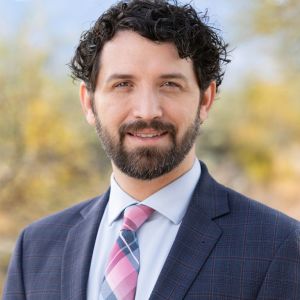
Christopher Luke Peterson
Associate Medical Director
DO

Alexander Danvers
Director of Treatment Outcomes
PhD

Emily Coombs
Naturopathic Medical Doctor
NMD

Jennifer Bao
Psychiatrist
MD

Bradley Steinwachs
Psychiatrist and Psychotherapist
MD

Lynn Jonen
Psychologist
PhD

Edmund Nadolny
Psychologist
Ph.D

Damon Watts
Physician Assistant
PA

Jenny Ortega
Physician Assistant
PA-C

Michelle Chacon
TMS Coordinator
RN, BSN Certified Clinical TMS Operator

Meggan Medley
Doctor of Chiropractic, Psychiatric Mental Health Nurse Practitioner
DC, PMHNP-BC, MSN, BSN, RN

Anthony Henderson
Physical Therapist
DPT

Kelli Parks
Associate Clinical Director
MS, LPC, EMDR-C

Robert Kincanon
Associate Clinical Director
PhD, LPC

Megan Seymour
Primary Therapist
PhD, LMSW, MSSW
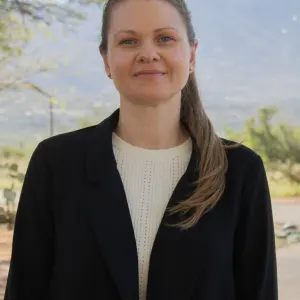
Luliia Bianchi
Primary Therapist
LAC

Marshall Turner
Primary Therapist
lll, MS, LAC

Devin Gorman
Primary Therapist
MA, LMFT

David Rivera
Primary Therapist
LMSW

Kiko Lanham
Primary Therapist
LMSW

Audrey S. Autrey
Primary Therapist
MA, LPC, NCC, CLYL, CCTP, CHT

Lisa Lopez
Primary Therapist- Licensed Professionals Program
LMSW

Joanna L. Smith
Primary Therapist, Outpatient
M.Ed, MS, E-RYT 500

Sean Battle
Specialty Therapist
LAC, NCC

Jim H. Davis
Somatic Experiencing Practitioner
MA

Elaine Hixson-Weiss
Specialty Therapist
MC, LPC

Danielle LaBelle Kincanon
Specialty Therapist
LCSW
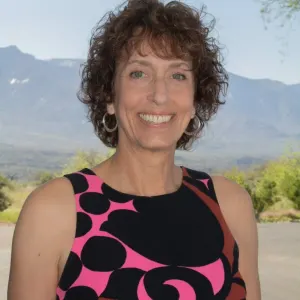
Adena Hope Bank
Certified Psychodramatist
LCSW, LISAC, BCERTS, CP

Sierra Luro
Family Therapist
LMSW

Timothy Brigham
Manager of Residential Counseling
Ph.D.

Ian Hudick
Manager of Clinical Services
MS

Vincent Aguilar
Residential Counselor
BA

Jamie Besnoff
Residential Counselor
MS
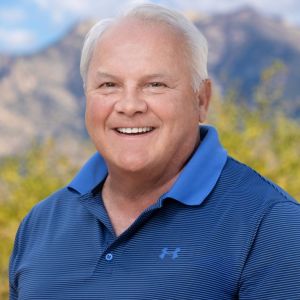
John Brussa
Residential Counselor
BS, BA

Moira Cahill
Residential Counselor
LSAT, BS

Tina DePalma
Residential Counselor
BA

Savannah Unruh
Residential Counselor
BA

Noah Wulf
Residential Counselor
BA

Christopher Sharp
Experiential Supervisor
PhD

Jennifer England
Program Supervisor & Equine Therapist
LAC

Michael Brown
Equine Specialist

Jessica Hall
Manager of Case Management

Bryanna Clinton
Case Manager Lead

Daniel True
Specialist for Red, White, and Blue Program

Alicia Newton
Specialist for Red, White, and Blue Program

Adam Lasley
Case Manager

Cat Starks
Case Manager

Robert Queen
Case Manager
BA

Sidney Parrish
Case Manager

Jacey Gaither
Case Manager

Sherri Erickson
Case Manager
Your Care Options
Specializations
Alcohol
Using alcohol as a coping mechanism, or drinking excessively throughout the week, signals an alcohol use disorder.
Bipolar
This mental health condition is characterized by extreme mood swings between depression, mania, and remission.
Depression
Symptoms of depression may include fatigue, a sense of numbness, and loss of interest in activities. This condition can range from mild to severe.
Executives
Executive treatment programs typically directly support the needs of people who manage businesses and may provide flexible schedules and office space to allow work during treatment.
Obsessive Compulsive Disorder (OCD)
OCD is characterized by intrusive and distressing thoughts that drive repetitive behaviors. This pattern disrupts daily life and relationships.
Post Traumatic Stress Disorder
PTSD is a long-term mental health issue caused by a disturbing event or events. Symptoms include anxiety, dissociation, flashbacks, and intrusive thoughts.
Trauma
Some traumatic events are so disturbing that they cause long-term mental health problems. Those ongoing issues can also be referred to as "trauma."
Who We Treat
Executives
Executive treatment programs typically directly support the needs of people who manage businesses and may provide flexible schedules and office space to allow work during treatment.
LGBTQ+
Addiction and mental illnesses in the LGBTQ+ community must be treated with an affirming, safe, and relevant approach, which many centers provide.
Men and Women
Men and women attend treatment for addiction in a co-ed setting, going to therapy groups together to share experiences, struggles, and successes.
Professionals
Busy, high-ranking professionals get the personalized treatment they need with greater accommodations for work, privacy, and outside communication.
Veterans
Patients who completed active military duty receive specialized treatment focused on trauma, grief, loss, and finding a new work-life balance.
Treatment Services
Day Treatment
In a PHP, patients live at home but follow an intensive schedule of treatment. Most programs require you to be on-site for about 40 hours per week.
Intensive Family Program
Some rehabs offer intensive programs for loved ones. Group and individual therapy sessions help everyone heal, and improve family dynamics.
Outpatient
During outpatient rehab, patients attend a structured treatment program while continuing to live at home.
Residential
In a residential rehab program, patients live onsite, with access to daily treatment and 24-hour care. An average stay is 30-90 days.
Approaches
Evidence-Based
A combination of scientifically rooted therapies and treatments make up evidence-based care, defined by their measured and proven results.
Experiential
Expressive tools and therapies help patients process past situations, learn more about themselves, and find healing through action.
Family Involvement
Providers involve family in the treatment of their loved one through family therapy, visits, or both–because addiction is a family disease.
Holistic
A non-medicinal, wellness-focused approach that aims to align the mind, body, and spirit for deep and lasting healing.
Individual Treatment
Individual care meets the needs of each patient, using personalized treatment to provide them the most relevant care and greatest chance of success.
Personalized Treatment
The specific needs, histories, and conditions of individual patients receive personalized, highly relevant care throughout their recovery journey.
Twelve Step
Incorporating spirituality, community, and responsibility, 12-Step philosophies prioritize the guidance of a Higher Power and a continuation of 12-Step practices.
Wellness
Wellness philosophies focus on the physical, mental, and spiritual wellness of each patient, helping them restore purpose with natural remedies.
Therapies
1-on-1 Counseling
Patient and therapist meet 1-on-1 to work through difficult emotions and behavioral challenges in a personal, private setting.
Meditation & Mindfulness
A practiced state of mind that brings patients to the present. It allows them to become fully aware of themselves, their feelings, and the present moment.
Transcranial Magnetic Stimulation
Localized magnetic pulses stimulate areas of the brain to increase brain activity and reduce abnormal functions.
Adventure Therapy
This experiential approach uses the physical and emotional challenges of outdoor activities as tools for personal growth.
Equine Therapy
Guided interactions with trained horses, their handler, and a therapist can help patients improve their self-esteem, trust, empathy, and social skills.
Experiential Therapy
With this approach, patients heal by doing. Therapists help patients process difficult emotions to speak, using guided activities like art or dance.
Eye Movement Therapy (EMDR)
Lateral, guided eye movements help reduce the emotional reactions of retelling and reprocessing trauma, allowing intense feelings to dissipate.
Conditions We Treat
Schizophrenia
Schizophrenia is a serious mental health condition that causes hallucinations, delusions, and disordered thinking.
ADHD, ADD
ADHD is a common mental health condition caused by dopamine imbalance. Common symptoms include inattention, hyperactivitiy, and impulsivity.
Anxiety
Anxiety is a common mental health condition that can include excessive worry, panic attacks, physical tension, and increased blood pressure.
Bipolar
This mental health condition is characterized by extreme mood swings between depression, mania, and remission.
Chronic Pain Management
Long-term physical pain can have an affect on mental health. Without support, it can also impact your daily life and even lead to addiction.
Depression
Symptoms of depression may include fatigue, a sense of numbness, and loss of interest in activities. This condition can range from mild to severe.
Eating Disorders
An eating disorder is a long-term pattern of unhealthy behavior relating to food. Most people with eating disorders have a distorted self-image.
Obsessive Compulsive Disorder (OCD)
OCD is characterized by intrusive and distressing thoughts that drive repetitive behaviors. This pattern disrupts daily life and relationships.
Post Traumatic Stress Disorder
PTSD is a long-term mental health issue caused by a disturbing event or events. Symptoms include anxiety, dissociation, flashbacks, and intrusive thoughts.
Substances We Treat
Alcohol
Using alcohol as a coping mechanism, or drinking excessively throughout the week, signals an alcohol use disorder.
Benzodiazepines
Benzodiazepines are prescribed to treat anxiety and sleep issues. They are highly habit forming, and their abuse can cause mood changes and poor judgement.
Co-Occurring Disorders
A person with multiple mental health diagnoses, such as addiction and depression, has co-occurring disorders also called dual diagnosis.
Cocaine
Cocaine is a stimulant with euphoric effects. Agitation, muscle ticks, psychosis, and heart issues are common symptoms of cocaine abuse.
Drug Addiction
Drug addiction is the excessive and repetitive use of substances, despite harmful consequences to a person's life, health, and relationships.
Heroin
Heroin is a highly addictive and illegal opioid. It can cause insomnia, collapsed veins, heart issues, and additional mental health issues.
Methamphetamine
Methamphetamine, or meth, increases energy, agitation, and paranoia. Long-term use can result in severe physical and mental health issues.
Opioids
Opioids produce pain-relief and euphoria, which can lead to addiction. This class of drugs includes prescribed medication and the illegal drug heroin.
Languages
Aftercare
Care Designed for Your Needs
Personal Amenities
Amenities
Special Considerations
LGBTQ group
Group therapy unites LGBTQ+ patients in a safe and culturally competent setting, encouraging peer support under the expert leadership of a therapist.
First Responders Program
Paramedics, police officers, firefighters, and others join in a specific First Responders program, usually focused on trauma, grief, and work-life balance.
Activities
Yoga
Yoga is both a physical and spiritual practice. It includes a flow of movement, breathing techniques, and meditation.
Off-Site Activities

Learn More About the Center
International Admissions
Learn more about Sierra Tuscon’s admissions and travel process for those coming from the UK.
Conversation Guide for Loved Ones
Sierra Tucson offers a guide for loved ones who need to begin tough conversations with a family member who needs treatment.
Sierra Tuscon’s Red, White, And Blue Program
Explore Sierra Tucson’s specialized treatment program for military personnel, first responders, veterans, and retirees.
Take a Tour of Sierra Tucson
Click through Sierra Tucson’s robust photo gallery to see their variety of amenities, accommodations, seating areas, and horses.
What people are saying
Treatment
3.5
Accommodations
4.0
Food & Nutrition
4.1
Value
3.9
J
Reviewed 09/06/24
Review from Rehabs.com
Tim
Reviewed 07/13/22
Review from Rehabs.com
Jennifer
Reviewed 02/23/23
Review from Rehabs.com
Amy
Reviewed 07/06/21
Review from Rehabs.com
Cindy
Reviewed 04/09/24
Review from Rehabs.com





